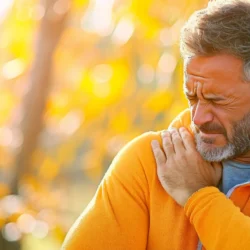Regular physical activity is essential for maintaining good health and well-being, and daily exercise plays a crucial role in promoting overall fitness and longevity. Engaging in daily exercise offers a wide range of physical, mental, and emotional benefits that contribute to a higher quality of life. For adult populations, incorporating a variety of exercises into their daily routine can help improve cardiovascular health, strengthen muscles and bones, enhance flexibility and balance, and boost mood and cognitive function.
Among the most recommended exercises for adults are aerobic activities, strength training, flexibility exercises, and balance exercises. Aerobic exercises such as walking, jogging, cycling, swimming, and dancing are excellent for improving cardiovascular health, increasing endurance, and burning calories. Strength training exercises, including weightlifting, resistance band workouts, and bodyweight exercises, help build and maintain muscle mass, improve metabolism, and support bone health. Flexibility exercises like yoga and stretching routines enhance joint mobility, reduce the risk of injury, and promote relaxation. Balance exercises, such as tai chi and stability exercises, are important for preventing falls, maintaining stability, and enhancing coordination.
Numerous studies have shown that daily exercise has a profound impact on reducing stress levels and promoting longevity. Research has demonstrated that regular physical activity can help lower cortisol levels, the body’s primary stress hormone, and increase the production of endorphins, the “feel-good” chemicals in the brain. These physiological changes associated with exercise contribute to reduced feelings of anxiety and depression, improved mood, and better stress management. A study published in the “Journal of Health Psychology” found that individuals who engaged in regular physical activity reported lower perceived stress levels and higher overall well-being compared to sedentary individuals.
Furthermore, daily exercise has been linked to increased longevity and a lower risk of chronic diseases. A large-scale study published in the “British Journal of Sports Medicine” revealed that individuals who met the recommended guidelines for physical activity had a significantly lower risk of premature death compared to those who were inactive. The study highlighted the importance of engaging in regular exercise, even at moderate intensity, in prolonging life expectancy and reducing the incidence of major health conditions such as cardiovascular disease, diabetes, and certain types of cancer.
In addition to its physical health benefits, daily exercise has been shown to have positive effects on cognitive function and brain health. Regular physical activity can improve memory, attention, and executive function, as well as reduce the risk of cognitive decline and dementia in older adults. A study published in the “Journal of Alzheimer’s Disease” demonstrated that individuals who engaged in regular aerobic exercise experienced improvements in cognitive performance and brain function compared to sedentary individuals. The findings underscore the importance of daily exercise in maintaining cognitive vitality and promoting brain health throughout the lifespan.
In conclusion, daily exercise is a cornerstone of a healthy lifestyle and plays a vital role in reducing stress, promoting longevity, and enhancing overall well-being. By incorporating a variety of exercises into their daily routine, adults can improve their physical fitness, mental health, and cognitive function. The recommended exercises for adult populations, including aerobic activities, strength training, flexibility exercises, and balance exercises, offer a comprehensive approach to maintaining health and vitality. Research studies consistently demonstrate the numerous benefits of daily exercise, from stress reduction and longevity to cognitive enhancement and disease prevention. Making daily exercise a priority can lead to a healthier, happier, and more fulfilling life for individuals of all ages.





